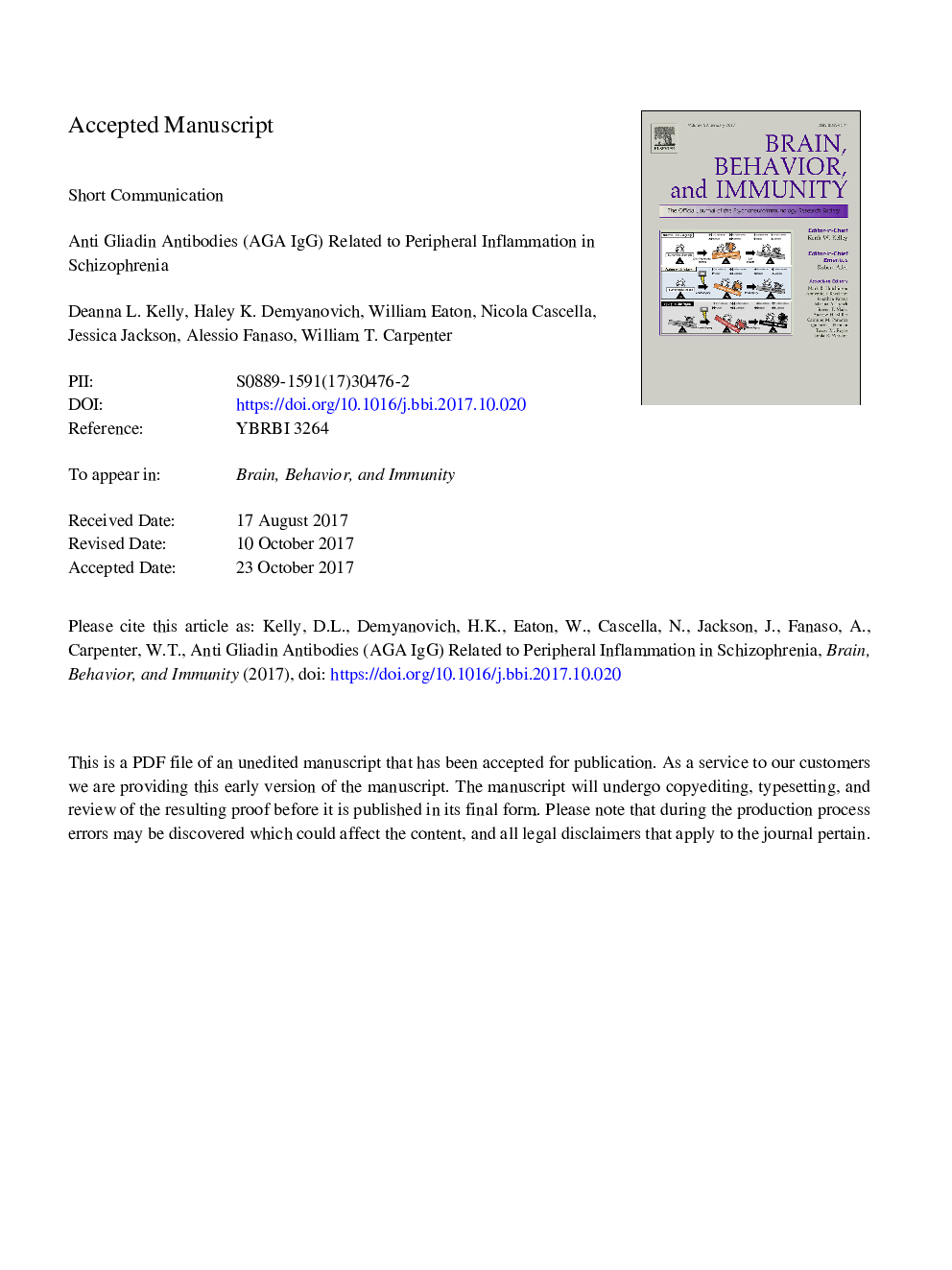| Article ID | Journal | Published Year | Pages | File Type |
|---|---|---|---|---|
| 7279353 | Brain, Behavior, and Immunity | 2018 | 15 Pages |
Abstract
Altered immune function and inflammation are seen in schizophrenia, however, peripheral inflammatory markers are not consistently elevated in all people, suggesting inflammation may be present only in a subgroup. We measured TNF-α and IL-Iβ in 100 people with schizophrenia or schizoaffective disorder and correlated these with antibodies to gliadin, a protein found in wheat, barley and rye that has been found to be elevated in some people with schizophrenia. We hypothesized that higher peripheral antigliadin antibodies (AGA IgG) would be associated with higher peripheral inflammation as measured by TNF-α and IL-1β. Mean log transformed values of TNF-α, (p = .029) and IL-1β (p = .016) were over twofold higher in people with schizophrenia who had high levels of AGA IgG (â¥7 U) compared to those who did not have positivity to AGA IgG. We found a significant positive correlation between AGA IgG and the log transformed TNF-α (r = 0.42, p < .0001) as well as IL-Iβ (r = 0.51, p < .0001). The relationship was independent of cigarette smoking, body mass index and antipsychotic medications. People with schizophrenia having higher levels of AGA IgG show higher levels of peripheral inflammation and may define a subgroup with distinct pathophysiology and potentially novel treatment targets.
Related Topics
Life Sciences
Immunology and Microbiology
Immunology
Authors
Deanna L. Kelly, Haley K. Demyanovich, William W. Eaton, Nicola Cascella, Jessica Jackson, Alessio Fasano, William T. Carpenter,
